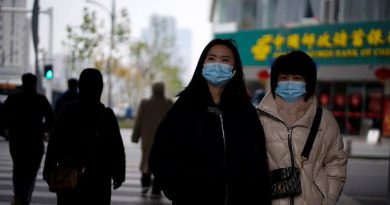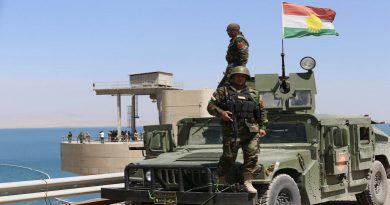How to end Iranian Regime’s War on the World?
by Dr. Reza Parchizadeh
I believe we should not be afraid of the “start” of a war, because the war already started four decades ago. What we should be concerned about is how to bring this forty-year war to an end.
The Honorable Congressman Crenshaw, Dear Mr. Chairman, thank you very much for inviting me to this conference. I am deeply honored to be among the nice people here who have the good of America and Iran in heart and mind.
Before coming to this conference, I studied Mr. Fakhravar’s proposed constitution and found it promising. However, I don’t think this or any other constitution can be installed in Iran before the Islamic Republic’s war on the world has come to an end. That is because it was the Islamist regime itself that since Day One declared war on the world. Death to America, Death to Israel, Death to England, and Death to Saudi Arabia are only some of the most recognized death chants of the regime on which it has also lethally and destructively acted whenever it has found the opportunity.
The following are only some of the most well-known warlike acts that the regime has committed since it came to power in Iran: the Iran Hostage Crisis (1979) during which 52 American diplomats and citizens were held hostage for 444 days; the Beirut Barracks Bombings (1983) during the Lebanese Civil War where 307 American and French peacekeeping forces were killed; the Lockerbie Bombing (1988) during which the Pan American Flight 103 was bombed over Scotland, killing all the 259 people on board; the AMIA Bombing (1994) during which the Argentine Israeli Mutual Association building was bombed, killing 85 people and injuring hundreds; the Khobar Towers Bombing (1996) during which the living quarters of the Coalition forces in Saudi Arabia were bombed, killing 19 U.S. Air Force personnel and injuring close to 500 Saudis; and finally the September 11 Attacks (2001) where the World Trade Center was targeted, resulting in the deaths of 2996 and injury of over 6000 people.
In addition to these iconic acts of terrorism, the regime’s Revolutionary Guards and their proxy forces such as Hezbollah in Lebanon, Hashd al-Sha’bi in Iraq, and the Taliban in Afghanistan are responsible for the ongoing killing of the Coalition forces in the Middle East; fomenting unrest as well as trafficking massive amounts of narcotics in Latin America; taking hostage Western, including American, citizens in the Middle East; and war crimes in Syria and Yemen.
In the past couple of years, the regime’s belligerence has become so flagrant that even its most ardent defenders in the West cannot deny its habitual warmongering. As such, I believe we should not be afraid of the “start” of a war, because the war already started four decades ago. What we should be concerned about is how to bring this forty-year war to an end.
Here I would like to draw your attention to the concerns of the ordinary Iranian and American citizens about the present plight. When I announced on social media that I was going to Congress to speak about Iran and America, people asked me to impart these issues to the Honorable Congressman Crenshaw as well as the others present:
- The US Congress needs to consider the fact that the freedom-loving people of Iran are in need of America’s solid assistance to topple the regime. That is because the people cannot take on a brutal ideological, totalitarian, and militaristic regime on their own, and that with empty hands and without any kind of protection. People particularly emphasized the importance of satellite internet and humanitarian intervention.
- The US Congress needs to come up with practical ways to stop the regime’s gross violation of human rights in Iran and the Middle East, especially with regard to religious and ethnic minorities such as Jews, Baha’is, Christians, Christian converts, Sunnis, Arabs, Azaris, Baluchis, Kurds, and Turkmens.
- The US Congress needs to keep an eye out for the Iranian refugees in Turkey, who are pressed between the hammer and the anvil. On the one hand, the UN has stopped processing their cases, and on the other the Turkish government keeps cracking down on them, even sending them back to Iran in collaboration with the Iranian regime.
- The US Congress needs to vigorously pursue the issue of the American hostages in Iran, including Bob Levinson.
- The US Congress needs to consider shutting down the Iranian regime’s lobbies and lobbying activities in the United States once and for all. That is because these individuals/organizations advance the agenda of the Iranian regime at the expense of the US national security interest. As such, they are in fact the agents of influence of a hostile regime that can and should be prosecuted on the US soil.
- The US Congress needs to consider keeping close tabs on the family members of the regime authorities in the US and prosecute them if necessary. That is because these individuals, while benefiting from living in America, usually promote the Iranian regime’s positions at the expense of the US security interests. It is known that some of them even participate in illegal activities such as money laundering and transfer of technology on behalf of the regime. On the same note, many wonder how President Trump’s travel ban only affects ordinary Iranians and not the families, affiliates, and lobbyists of the regime in America, who do as they want.
- The US Congress needs to consider taking action against the corrupt Iranian regime officials who transfer money and assets overseas and then live and do business in other countries with impunity. These individuals especially abound in Europe and Canada, and their wealth is actually comprised of the money that has been stolen from the people of Iran and laundered to look like legitimate.
- The US Congress needs to take firm action to liberate the US government-owned media outlets such as the Voice of America and Radio Farda from the clutches of the pro-regime elements who, while reflecting and promoting the positions of a faction of the regime and its lobbies, censor real dissidents or rarely cover their positions and activities. We should not forget that the State Department’s media have an unfortunate history of being exploited to do exactly the opposite of what they were meant to do, which is promoting American values. Indeed, for a great portion of the Cold War, the Communists would exploit US government media to promote the cause of the Soviet Union instead of that of America. It looks like a similar pattern is followed now with regard to the Islamist regime in Iran.
- The US Congress needs to consider sanctioning the extensive propaganda machine of the Iranian regime, especially its highly strategic state-owned radio and television, the IRIB. That is because, in this age of asymmetrical warfare, the media play a hugely important role in shaping thought and directing action. And as long as the regime is allowed to dominate the intellectual sphere, taking any action against it tends to bring about unwanted consequences or even backfire at times. As such, the regime’s propaganda machine must be neutralized along with its military machine if we expect to bring about any kind of meaningful change in Iran.
Article first published on National Herald.
Dr. Reza Parchizadeh is a political theorist and analyst. His area of expertise is the Middle East, the United States, the United Kingdom, and Russia. He defended his doctoral dissertation at Indiana University of Pennsylvania (IUP) under the title “The Recurring Progress of English Political Thought in Shakespeare’s Histories,” with a concentration on political thought, history of ideas, philosophy of history, cultural studies and Shakespeare, and passed it with distinction.



